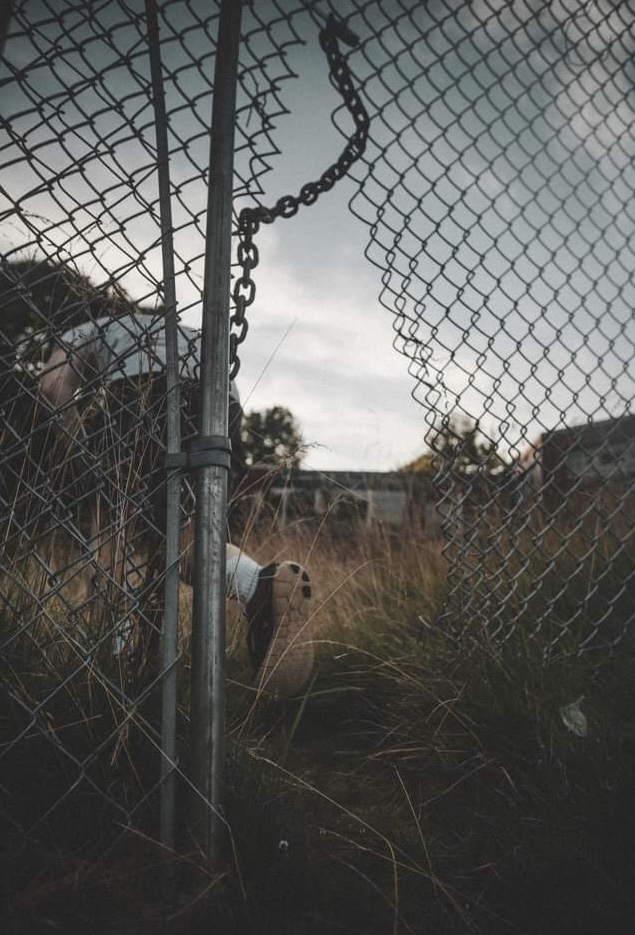This month’s “Son of Pictonaut” very nearly didn’t happen, devoid of inspiration I was conent to let it pass me by. At least until I was seized by an idea 3 days after the end of March.
This month’s image was “Person Going Through a Broken Wire Fence” by Zachary DeBottis on Pexels. On some level I felt a bit like I was channelling John Darnielle. Not necessarily in terms of style, but more in terms of “vibes.” I did after all, finish reading “Wolf in the White Van” last month. But what we have is a stream of consciousness piece that heavily references information I scraped from Wikipedia articles on historical events. Which events should hopefully become rapidly apparent once you start reading the story.

It was late afternoon, and the air was thick with the sticky, soupy humidity of late spring; hot, not yet the withering heat of high summer, but still hot enough to make me sweat. A chorus of cicadas we’re in fine voice, and the looming grey bank of a thunderhead sat on the horizon temping the world with a promise it hadn’t yet decide to fulfil. I was out on the steps of the porch, sitting on the rotting wooden boards, gazing at the chain link fence across the yard, and thinking about the Rubicon.
The Rubicon is a small, shallow river in northeastern Italy, running a meagre 50 miles from the Apennine Mountains before emptying out into the Adriatic Sea. Rubicon is also a brand of tropical fruit flavoured soft drinks, but that fact is unrelated to my current train of thought.
The Rubicon is important in a historical context as it once marked the boundary between the Roman province of Cisalpine Gaul and Italy. This is important in a historical context because of what some chucklefuck called Julius Caesar (you may have heard of him) did there on the night of January the 10th in 49 BC. Although this was before he was famously, and violently ventilated by means of pointed metal objects in a way which is generally considered to be less than ideal for anyone who wishes to keep their blood internal, and their organs unperforated. These two events are not entirely unrelated. Which is a point for consideration at a later date.
What Caeser did to the Rubicon was cross it. This on its own is not particularly noteworthy as it is a thing quite frequently done to rivers, either by means of bridges, fords, tunnels, ferries, boats, or similar methods, by many people every day. However, most people don’t do it in the company of the Legio XIII Gemina a force of some three and a half thousand men, and thus precipitate a civil war.
All of this information is purely a thought process preamble to provide context to the main point surging through my brain. These events are, in of themselves, functionally unimportant. It’s what they came to represent idiomatically that is important.
“Crossing the Rubicon” became an idiom meaning “passing a point of no return.” Strangely, declaring war has that sort of impact of things. Allegedly after making the decision to go all in on his treasonous river crossing, Caeser said “the die is cast.” I’ve heard various thoughts on what this actually meant at the time, most of them pertaining to dice: that the result was now know, or that it was some crude divination to consult the fates. But in my mind I always assumed it referred to the types of dies found in metal working and fabrication, and the casting part referred to the act of the die being cast in metal: molten iron poured into some kind of mould, cooled, turned out, and then you had your end result: a die. And that was that. It was done. Made. Mutable only through wear and toil. Giving you a tool with which to change and shape material into materiel. A force of creation.
The chain link fence on the opposite side of the yard was my Rubicon. Crossing through the ragged hole next to the post. It wouldn’t be difficult. Or complicated. It would be so fucking easy in every way, except for the fact it absolutely wasn’t.
Behind me, back in the house, the shouting had started up again. Muffled by the walls, and punctuated by the sound of smashing plates, and thuds of some unknown, yet forcefully hurled objects. This was the crisis of our republic, and it showed no sign of stopping. The prudent thing, would be to get out while I still could; before it collapsed. But the smart thing would be to change the dynamic on my terms. To make it collapse.
“Fuck it,” I said. “The die is cast,” I ran for the fence.
Leave a comment